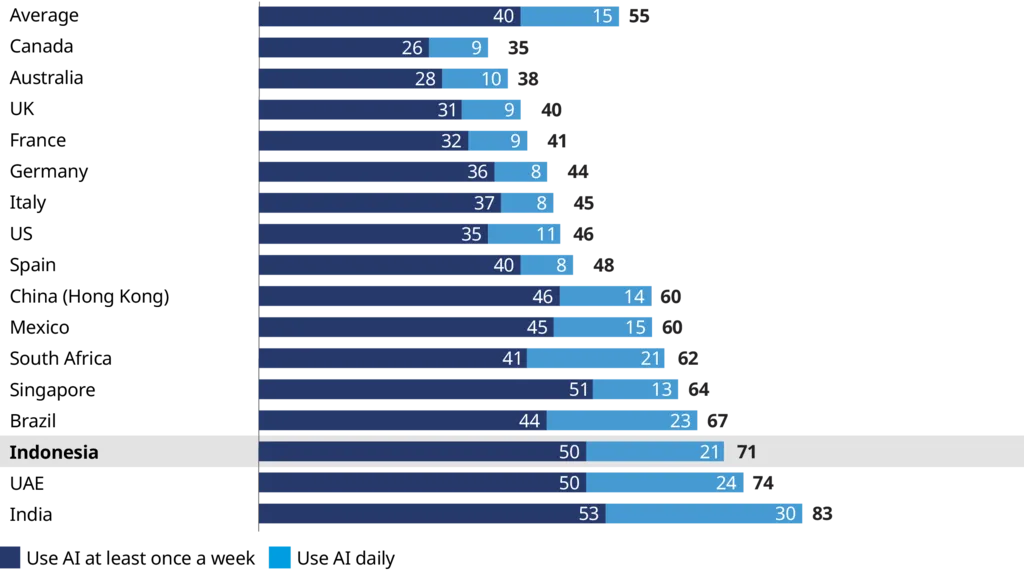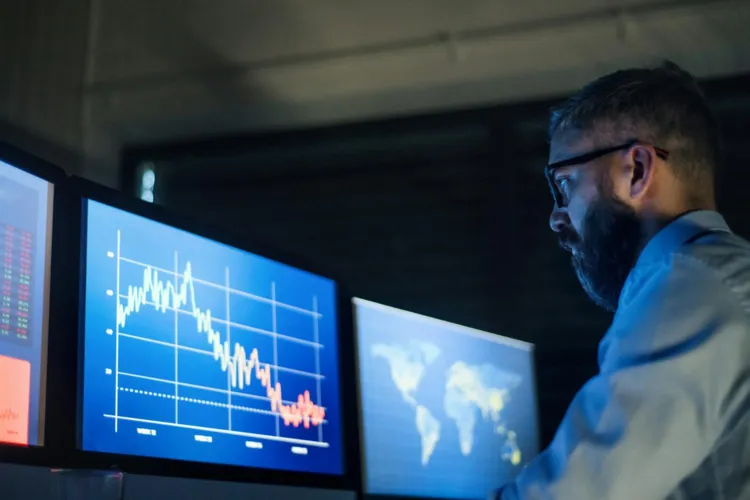Indonesia is quickly becoming one of the world’s most important centers for artificial intelligence (AI). With a young, skilled population and strong government backing, the country is not just using AI, but exporting AI expertise to global firms. The keyword shaping this transformation is clear: Indonesia AI Talent Export. Let's take a closer look!
AI Market Growth and Rising Global Demand
Indonesia’s AI market is booming. Valued at $2.4 billion today, it is expected to grow to $10.88 billion by 2030, reflecting a CAGR of 28.65%. This rapid expansion is supported by investments from global technology giants such as NVIDIA and Microsoft.
But what sets Indonesia apart is not just local adoption, but the country’s growing role as a global supplier of AI services. The value of exported AI services will rise from $230 million in 2025 to $750 million by 2030, a growth of 226%. This makes Indonesia a rising hub for outsourced AI talent.
Read Also: AI and Indonesia Digital Economy Growth Soar to Turn Heads
Indonesia AI Talent Export: The World’s Highest AI Adoption Rate

Indonesia holds a unique record: 92% of workplaces in the country use AI tools, the highest rate in the world. This high adoption rate shows that the country is not just training AI professionals but also embedding AI across industries.
For global companies, this proves that Indonesia’s workforce is ready to deliver real-world AI solutions, not just academic knowledge. This maturity makes Indonesia especially attractive to firms outsourcing advanced digital tasks.
A Growing AI Talent Pool
The number of Indonesian AI professionals is growing rapidly. From 80,000+ in 2025, the talent pool is projected to exceed 200,000 by 2030. That is more than 150% growth in just five years.
This surge is backed by government programs such as the AI Talent Factory, designed to train young professionals and expand the country’s digital workforce. With over 70% of the population under 40, Indonesia has the demographic advantage to keep supplying skilled professionals for years to come.
Exporting Talent in a Competitive Market
Global outsourcing is shifting toward Southeast Asia. By 2027, 20-25% of all outsourced software spending is expected to flow into the region. Indonesia and Vietnam are set to take the lead.
Indonesia’s advantage lies in its English-proficient, highly skilled, and cost-competitive workforce. Coupled with improving digital infrastructure and strong policy support, the country is positioning itself as a top outsourcing destination for AI and digital services.
Bridging the Talent Gap with Indonesia AI Talent Export
Indonesia has about 3 million employable adults with in-demand digital skills, but the economy needs at least 12 million to fully achieve its digital transformation goals. While this gap poses a challenge, it also signals an opportunity: as demand grows at home, Indonesia can train surplus talent for global export.
This dual role—serving local needs and exporting skills—cements Indonesia’s place in the global AI economy.
Indonesia AI Talent Export: What's Beyond
Indonesia’s transformation from a consumer of technology to a global exporter of AI talent is underway. With record-high adoption rates, a rapidly growing talent pool, and strong demand from international firms, the country is on track to become a true AI hub in Southeast Asia.
As Indonesia AI Talent Export accelerates, the nation not only boosts its economy but also strengthens its role in shaping the global digital future.
FAQs
1. How big is Indonesia’s AI market today?
It is worth about $2.4 billion and projected to grow to $10.88 billion by 2030.
2. How many AI professionals does Indonesia have?
Over 80,000 in 2025, expected to reach more than 200,000 by 2030.
3. Why are global firms outsourcing to Indonesia?
Indonesia offers skilled, English-speaking, cost-effective AI professionals with strong government support.
4. What is the value of Indonesia’s AI service exports?
It will grow from $230 million in 2025 to $750 million in 2030.
5. How does Indonesia compare globally in AI adoption?
Indonesia leads the world, with 92% of workplaces using AI tools.







